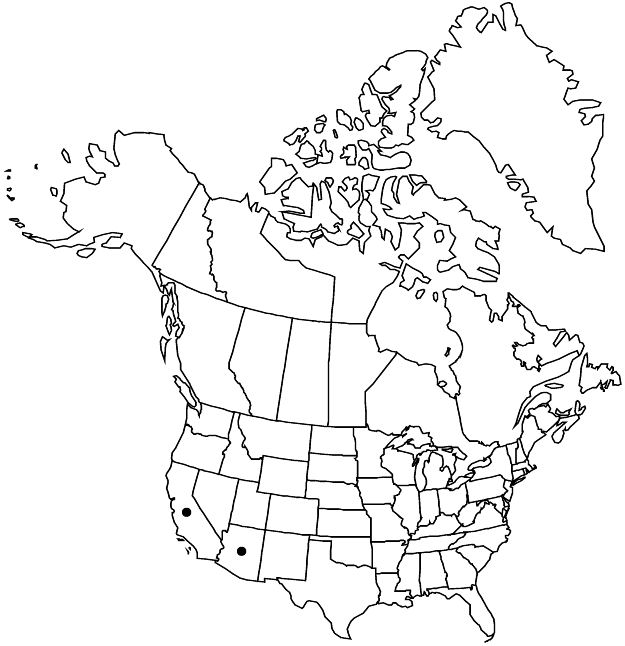Ceanothus perplexans
Syn. Fl. N. Amer. 1(1,2): 417. 1897.
Shrubs, 1–2 m. Stems erect, not rooting at nodes; branchlets brown to grayish brown, rigid, glabrate or tomentulose, glabrescent. Leaves not fascicled; petiole 1–3 mm; blade flat to ± cupped, elliptic, widely obovate, or suborbiculate, 10–20 × 7–18 mm, base rounded, margins thick, not revolute, usually sharply denticulate, sometimes weakly denticulate to almost entire, teeth 7–15, apex rounded to ± truncate, abaxial surface pale green to yellowish green, puberulent, hairs curly, glabrescent, adaxial surface green to yellowish green, sparsely puberulent, hairs curly, glabrescent. Inflorescences axillary, 0.7–2 cm. Flowers: sepals and petals white to cream; nectary yellow to green. Capsules 4–6 mm wide, usually not, sometimes weakly, lobed; valves smooth, horns lateral, usually minute, sometimes absent, spreading, intermediate ridges absent. 2n = 24.
Phenology: Flowering Jan–Apr.
Habitat: Granitic or metamorphic substrates, rocky slopes, ridges, alluvial fans, chaparral, montane shrublands, pinyon and/or juniper and montane conifer woodlands.
Elevation: 500–1900 m.
Distribution

Ariz., Calif., Mexico (Baja California)
Discussion
Ceanothus perplexans occurs in southwestern Arizona, on the desert slopes of the San Bernardino Mountains and Peninsular Ranges of southern California, and in Baja California. Ceanothus specimens from Guadalupe Island, Baja California, with entire or weakly denticulate leaf margins have been referred to either C. crassifolius or C. cuneatus, but in their leaf shape and indumentum they more closely resemble C. perplexans.
Selected References
None.
Lower Taxa
"thick" is not a number.